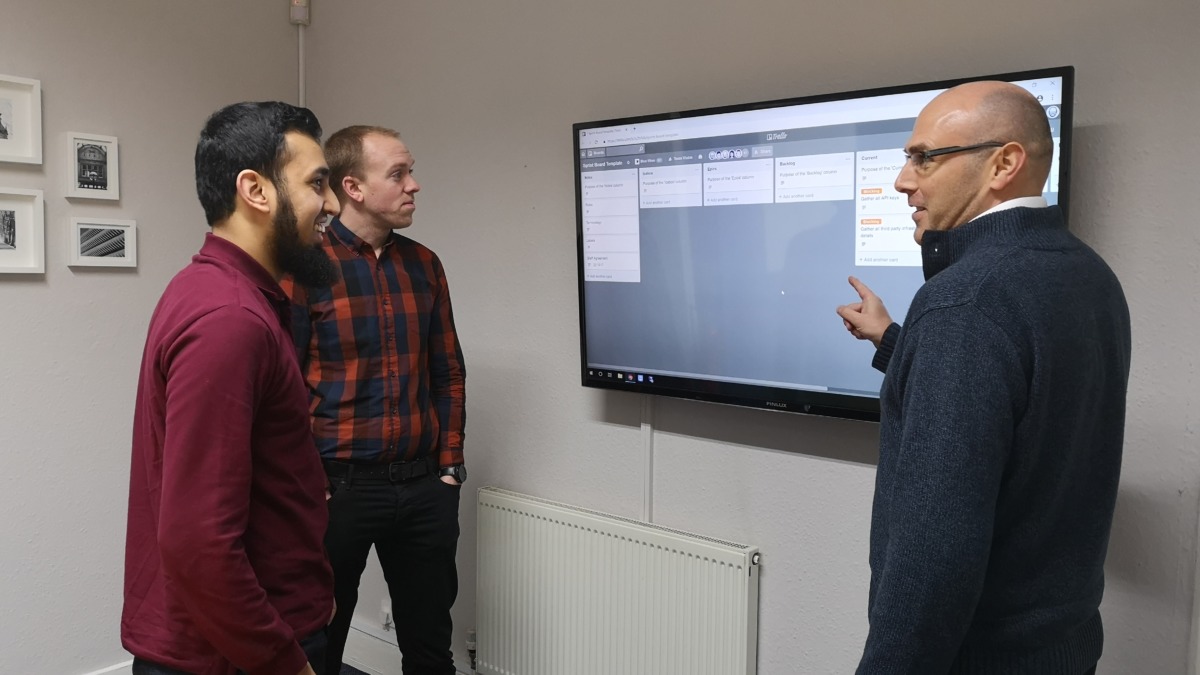What is agile project management?
25 January 2019

In the world of software agencies, the term ‘agile’ is ubiquitous. Almost, every software agency website you visit (ours included) the phrase ‘we are agile’ is used liberally…without much further explanation.
So what does agile mean?
Agile is a project management methodology. It emphasises regular communication and feedback as well as iterative development.
In very simple terms, this means breaking the project down into pieces (sprints), then at the end of each sprint demonstrating what’s been done to the client and collecting feedback. This feedback is then incorporated into the plans for the next sprint. The process is repeated until the project is complete.
This is very different to a traditional ‘waterfall’ method of project management, where the project scope and timeline is very linear and set out in detail before any work takes place.
In 2001, the ‘Agile Manifesto’ was created by a group of 17 software developers (http://agilemanifesto.org/) who all met up to agree a common definition for agile. This is what they came up with:
- Individuals and interactions over processes and tools
- Working software over comprehensive documentation
- Customer collaboration over contract negotiation
- Responding to change over following a plan
Agile project management with Scrum

Scrum with Zaeem, Siôn and Dean using Trello, a project management application
At Blue Wren we use a particular form of agile project management called Scrum. Scrum was developed by Jeff Sutherland and Ken Schwaber (they both were part of the ‘Agile Manifesto’ group) and it is widely recognised as one of the most productive ways to deliver software projects.
It is however, one thing to say your approach is ‘agile’ and a very different thing to put it into practice. As a business it has taken us several years to educate and train our staff and clients to embrace the principles of Scrum. It is a constant challenge, but in the end, the benefits far out way the drawbacks.
Some of the key benefits we have realised using Scrum include:
- It makes us far more efficient, keeping project costs to a minimum
- We build better software tools because the project is constantly reviewed and adjusted based on client feedback
- It builds stronger client relationships because they are engaged throughout the project
- The process creates clarity from start to finish, motivating dev teams and giving management peace of mind
These benefits are only realised if everyone involved in the project (clients included) embrace the principles of agile and the process is strictly followed. In our case, this can sometimes mean halting a project until client feedback has been received on the latest sprint.
Hopefully this has provided an insight into what software agencies mean when they say they are agile. And if you are a business looking to engage a software agency who make these claims ask them to explain their process with examples. You will soon discover if they really are.
Michael Lough is Managing Director of Blue Wren, specialist in business process software. He is an advocate of Scrum project management and regularly delivers presentations on his experience and how to implement it into business. If you would like Michael to give a presentation to your business, event or group then please get in touch.
Recommended further reading:
- https://blog.capterra.com/definition-of-agile-project-management/ – An excellent blog explaining Agile in more detail.
- SUTHERLAND J, 2014, The Art of Doing Twice the Work in Half the Time (https://smile.amazon.co.uk/Scrum-Doing-Twice-Work-Half/dp/1847941109/ref=sr_1_1?ie=UTF8&qid=1548079795&sr=8-1&keywords=scrum)
Categories
Productivity

